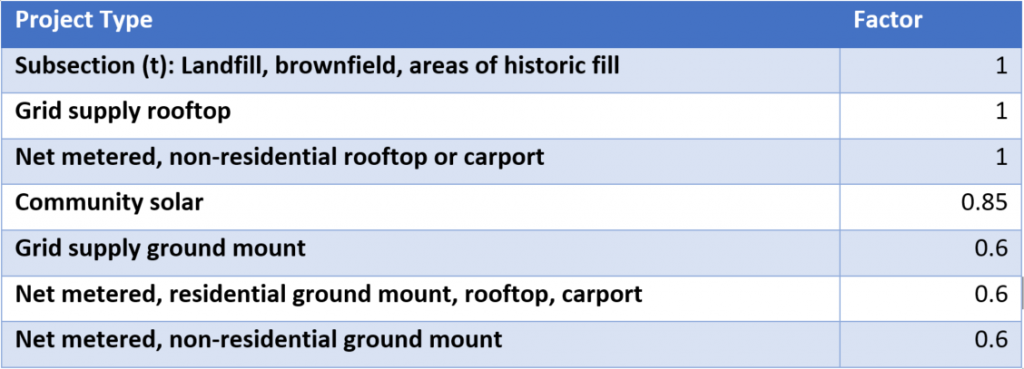New Jersey plans to
close its legacy Solar Renewable Energy Credit (“SREC”) program at the end of
April. However, the closure of the program is by no means the end to solar in
New Jersey.
Per the Clean Energy Act of 2018, New Jersey is required to close the current SREC incentive program once the New Jersey Board of Public Utilities (“BPU”) determines solar electricity generation equals 5.1% of the total state electricity generation load. Last week, just over a year later, the BPU announced that it will meet the 5.1% and will move forward to close the legacy program by May 1, 2020.
Importantly, solar projects that are already in the legacy program will remain eligible under the legacy program and will continue to generate SRECs for the term of their qualification life. However, moving forward the Clean Energy Act of 2018 tasked the BPU to develop a successor solar program.
While the design and structure of the successor program is not final, the BPU has proposed and finalized a new, temporary transition incentive program. Solar projects that have submitted a complete application to the legacy SREC registration program, but are not yet operational, will be eligible for this transition program and its new Transition Renewable Energy Credits (“TREC”) which, like the legacy SREC, a TREC will be generated on a per MWh production basis. This TREC program will officially open on May 1.
Under the new TREC program, a new solar project will be eligible for TRECs for 15 years and each TREC will have a two-year life. The TREC price is proposed at a fixed rate of $152 for the 15-year eligibility period. However, unlike the legacy program, the new price per TREC will be factored based on project type. The factors are as follows:

The incorporation of this factorization means the value of each TREC will differ based on project type. A project’s TREC value will be the base compensation rate of $152 times that project type’s factor. For a residential customer the TREC value is calculated by multiplying $152 by residential’s 0.6 factor, which yields a residential price of $91.20 per TREC for 15 years.
The intent of the new
TREC program is to ease the transition between the legacy SREC program and what
we hope will be a robust, long-term successor program.
It is essential for Sol Systems and other renewable energy companies to remain involved in the process as the BPU moves forward to design and implement the successor program. As of now, the BPU is holding discussions with stakeholders and actively requesting and accepting feedback. Solar energy is key to success of New Jersey’s competitive energy market and the continued growth of the industry is necessary to provide much needed job growth along with community economic and environmental health benefits.
ABOUT SOL SYSTEMS
Sol Systems is a leading national solar energy firm with an established reputation for integrity and reliability across its development, infrastructure and environmental commodity businesses.To date, Sol has developed and/or financed over 850 MW of solar projects valued at more than $1 billion for Fortune 100 companies, municipalities, counties, utilities, universities and schools. The company also actively shapes and trades in environmental commodity and electricity markets throughout the United States. The company was founded in 2008, is based in Washington D.C, and is led by its founder. Sol Systems works with its team, partners, and clients to create a more sustainable future we can all believe in. For more information: www.solsystems.com



